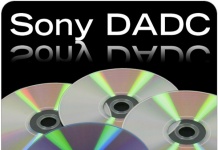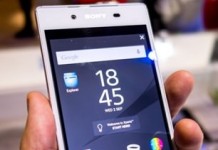 CNet, among others, has been publishing rumors that Sony will be releasing new readers soon.
CNet, among others, has been publishing rumors that Sony will be releasing new readers soon.
I generally don’t consider publishing rumors like this to be responsible journalism as they are so often wrong (look at the last round of “reliable” Apple rumors, for example), but mention them for the sake of completeness here.
Sony has invited TeleRead to a presentation, at the end of the month, about the future of the Sony Reader and when we get some real stuff we’ll let you know as soon as we can.


































Better have Wi-Fi/3G. And, where’s the iPhone/iPad/iPod touch apps? Without them Sony is finished.
If you get a chance, please ask Sony why they don’t have a feedback page on the internet.
I have several comments on my PRS-600, both hardware and firmware, but I can’t find any way to pass these comments on to the product developers.
@Devini: it is not up to Sony to deliver ADEPT ebook apps for anything but their Readers. That is all they are licensed to do with Adobe’s software.
Sony gave up the ability to deliver cross-platform reader apps when they signed up to Adobe’s Adept ecosystem. People keep asking for this but it is not something Sony can deliver. It is up to the masters of ADEPT at Adobe.
Which, of course, means you won’t see cross-plaform Sync of Adept ePubs until Adobe does something about it.
The closest thing to what you want is the Txtr iPhone/iPad app and that is mostly focused on selling the Txtr cloud-based service.
If you really want cross-platform sync any time soon you really want either Nook or the K-device. 😉
@Felix Torres Why in heavens name would Sony give that up? They must have been out of their minds. Thank God, I’ve got a Kindle (and a K3 on order). Amazon has the better ebook buying/reading experience by far.
@Devini: that is the deal they signed. Adobe licenses their ADE SDK for reader devices only. Sony can distribute it on hardware. Just that. Unless they pay for the right to give away a separate app. Adobe controls everything else; the back-end servers, the PC/Mac apps, everything. That’s the way the system runs.
It is no different than the way the (Amazon-owned) Mobipocket system works. Hardware vendors license Mobipocket DRM for their gadgets and Mobipocket does the apps for PCs, Macs, cellphones, PDAs, etc.
Now, if Sony had stuck with LRF, they would be masters of their fate instead of reselling ADOBE software and services.
As to why they did it? Weelllll, now…
There’s this disease that’s been going around for a couple decades now, called “standards religion” where companies jump blindly on the bandwagon of annointed standards, even when it kills their business model, just to win the approval of pundits and evangelists.
It makes them feel loved, I guess. 🙂
And Sony? Who knows?
Maybe they thought Adobe makes better software than they do.
Maybe they thought it would be better to be the big fish in the Adobe Pond instead of fighting it out in open waters with Amazon. Maybe it never occurred to them there was room for a bigger (Nook) fish in the pond. 😀
It’s hard to say if Sony would be better or worse off if they had stuck with LRF.
I am all for standards 🙂 This way I am able to choose from which vendor I can get my ePub eBooks. The Sony Reader was my first choice and I never regretted the decision.
Of course I live in Europe and can’t get a Nook, and I wouldn’t buy a Kindle (even I like the idea to get my ebooks wireless) because of the limited choice of books for abroad.
Standards are great. When they don’t kill your business model. But jumping on standards for the sake of standards?
Sony had a two year headstart on Amazon.
A four year lead on Nook.
How well has signing up with Adobe worked for *them*?
(shrug)
@Felix Torres
The list of things that Sony squandered is too long to just blame dumping BBeB for ADEPT.
Sony squandered their two-year lead on Amazon by treating the Reader as a niche product rather than an exciting market leader. ePub and OverDrive/ADEPT was the only clear path to differentiating Readers from Kindle by the time Sony woke up. And I agree that they woke up too late, since B&N has a good chance of walking away with the library books crowd, too.
The other strength they failed to capitalize on is their software – they had a lead over everyone in organizing large collections, which Kindle is just beginning to address (on device) and Nook is still ignoring. Interesting that the content sellers aren’t interested in their buyers organizing their book collection.
They partnered with a weak bricks & mortar chain in the US. And they appear to have thought that they owned the international market, but Amazon is playing that game aggressively now, and Borders is busy stabbing Sony in the back with their Kobo partnership.
And they took two years to wake up and realize that Amazon had it right: the device-bookstore link is critical for making the experience seamless for the reader. When they did, I suspect they had no choice but to look around for partners like Adobe if they wanted to stay in the game.
@Felix
You are incorrect about the limitations on RMSDK customers – there are in fact no such limitations on Sony or any other customer. They may create and ship code on any platform on their choosing. For instance Txtr makes an iOS application, and Sony EBL (their desktop software) uses RMSDK.
@Jim Lester: I’m aware of the TXTR app. The reports I’ve seen say its tied to the TXTR cloud-based service.
As long as you’re here: is *any* ADEPT licensee free to distribute an ADEPT-compatible app for free, for *any* platform? Without having to *pay* royalties for that deployment?
Given the clear benefit to Kindle and the demand for such an app on iOS, Android, PalmOS, or even Blackberry, the lack of such is one criticism I’ve often seen leveled on Sony and Nook.
I’ve assumed such a need had “fallen through the cracks” of the licensing regimes. But if it is simple short-sightedness on Sony and B&N’s behalf, I’ll cease defending them.
@Felix Torres: Sony already distributes ADEPT compatible apps for the Sony Reader, Windows and Mac. The application for Windows and Mac is called eBook Library and it uses the same Adobe Mobile API as the application living in the Reader. So that’s a fact. Don’t know about the licensing arrangement, etc., but why wouldn’t we assume that Sony does have rights to distribute the same eBook Library application for other platforms, i.e. Android and iOS?
@Felix Torres: I wonder if there is a limitation on ADEPT-compatible apps, because OverDrive, which has come out with their own app for audiobooks for iOS, has not launched a similar ADEPT app for e-Books. And B&N, which does have an iOS app, uses the eReader format there, not ePub.
Or maybe Adobe refuses to license ADEPT for iOS, since we all know about the lack of love between Adobe and Apple right now.
Although, that doesn’t explain the Android situation. Anyone know if Nook for Android is using ePub or eReader format?
On a related note: OverDrive’s iOS app is only mp3 compatible, not WMA (the vast majority of audiobooks), which makes me suspect that Microsoft is blocking that or the licensing fee is too high.
I think Nook for Android uses eReader but I can’t swear on it; I’m still looking for an Android tablet that’s consumer-grade, rather than hobbyist grade.
(On Overdrive and wma; you may be right. But also remember Apple controls what goes in iOS and they don’t LIKE wma at ALL. 😉 )
If I may clarify; I’m not against standards.
In love standards. When done right.
But there is a tendency for some companies to fall in love with standards and see them as panaceas. Worse, they lose sight of the fact that standards are supposed to means to an end, not an end unto themselves. Mainstream customers don’t buy standards; they buy whatever it is the standard is supposed to facilitate.
For ebook readers this means that it is important to remember that what consumers buy is ebook-access. The figures of merit for specific devices are going to depend on how well they carry out that one, core, feature. And “how well” is going to vary on a person to person basis. One size does not fit all and procrustean marketting strategies that try to stampede the market will only annoy those that know their needs well enough not to stampede.
In other words: ADEPT ePub has strengths, it facilitates access to many different bookstores. Today it has a weakness in that it is limited to licensed devices and PCs. Those strengths and weaknesses matter differently to different people; some care about accessing different ebookstores. Others don’t care as long as they can get the content they want in a timely fashion at acceptable prices.
For Sony, the issue is that in the two years since they dumped their previous business model they have gone from industry leader (Amazon and B&N both copied it) to a generic-reader vendor. As I said above; we have no way to know if sticking with LRF would have turned out any better, but in the world we live in, Sony Readers currently have exactly two distingushing features: they support LRF and they have SONY stenciled on them.
Otherwise they are not particularly different from the Kobos, Bookeens, Onyx, Pocketbooks, Hanlins, or Hanvons of the world. They use the same screens, the same processors, the same ADEPT software. Touchscreens? Readily available. Wireless? All over. Often better than Sony’s implementation.
Where the other ADEPT licensees understand they need to offer up added value features (TTS from the Hanlins, user customizability from PBG, greater format support from just about everybody) SONY has, in effect, pegged their entire fate to their brand. They are essentially selling generic ePub with a SONY stencil and expecting it to suffice.
Standards are supposed to be starting points, not endgames. You’re supposed to build upon standards, not go to sleep and let the competition lap you.
Maybe the new SONY Readers will bring something new to the table. One can only hope so.
Competition is good. But it also has to be effective competition. Me-too, dated products help nobody.
@Felix
First there is no such thing as an “ADEPT” licensee (not even really any such thing as ADEPT anymore). There are RMSDK (Reader Mobile SDK) customers/licensees who create reading devices/software, and there are ACS4 customers who run servers for distributing content. While some of our customers purchase both (Sony, B&N, etc), there are plenty of them that only purchase one or the other.
The RMSDK is provided in source form and customers are specifically allowed to port to platforms of their choosing. The licensing terms are currently a flat yearly fee and not royalty based.
I find it ironic that a cheap little Ectaco jetBook that now sells for less than $120 (depending on where you shop) can access MORE formats than the industry pioneer Sony Readers. I can read almost any format (except .pdb) and can check out Overdrive/ADEPT library books. I’m not sure Sony has any headroom left in this market; it may just be too late.
Regards,
Jack Tingle
@Paul Biba – when is the meeting you guys have been invited to?